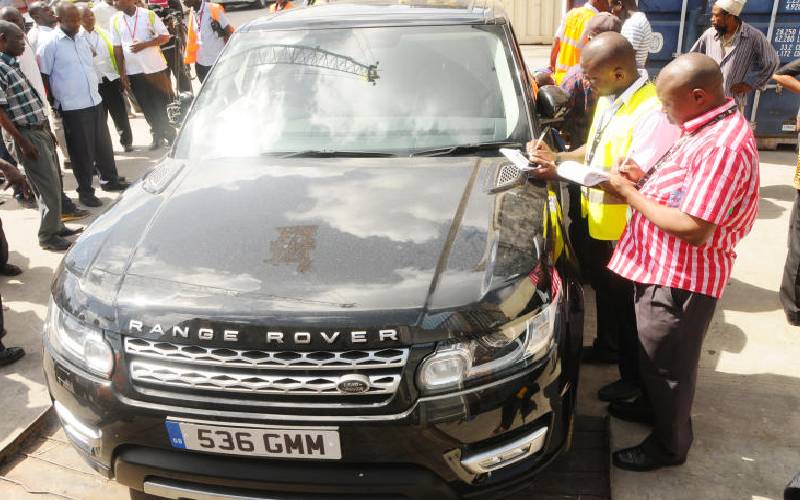×
The Standard e-Paper
Fearless, Trusted News

Detectives inspect one of the two Ranger Rovers impounded by the KRA officers in a container at the port of Mombasa on October 13, 2016. [Gideon Maundu, Standard].
Motorists using vehicles bearing foreign registration number plates are set to be subjected to new tough conditions.